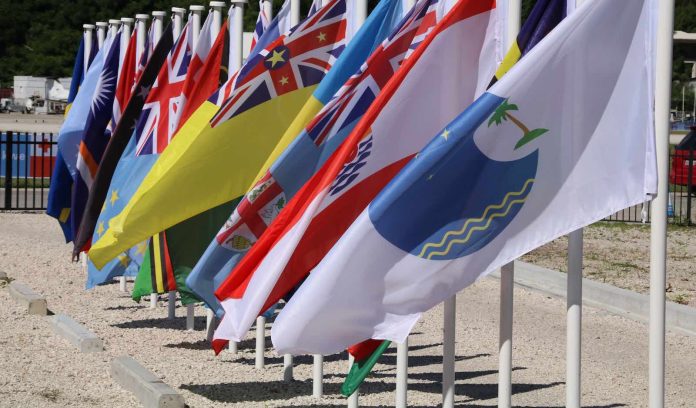
By Adam Wolfenden Campaigner, Pacific Network on Globalisation
This Week Trade Ministers from eleven countries will meet with the view to launch negotiations for an Indo-Pacific economic agreement. This agreement, the Indo Pacific Economic Framework (IPEF) is being spearheaded by the United States and includes the participation of Australia, New Zealand, India, Malaysia, among others and from the Pacific Islands, Fiji.
The IPEF is considered to be the U.S’s response to the increased engagement of China in the Pacific. As the White House stated in February “[China] is combining its economic, diplomatic, military, and technological might as it pursues a sphere of influence in the Indo-Pacific and seeks to become the world’s most influential power.” To counter this the U.S is seeking a coalition of countries to align and integrate their economies with the U.S.
To make this more palatable both internationally and domestically, the IPEF has avoided the usual inclusion of commitments by countries to cut import taxes. Instead, the IPEF comprises four pillars – trade; supply chains; clean energy, decarbonisation, and infrastructure; and tax and anticorruption – which countries can choose which pillars they sign up to. Despite the lack of market access commitments being negotiated, the IPEF seeks to harmonise the economic policies of the participating countries, something that will greatly benefit those U.S companies wanting to establish themselves abroad.
While the details of the pillars and scope of any final agreement remains opaque the leaked draft ministerial text of the trade pillar offers some insights. The trade pillar contains a wide range of components that will cover many of the contemporary challenges facing governments and includes labour, environment, digital economy, agriculture, transparency and good regulatory practices, competition policy, trade facilitation, gender, indigenous populations, and development and economic cooperation.
Such a broad scope will allow for widespread reorientation of IPEF members economies towards the U.S Take digital trade for example. The U.S has an aggressive interest in setting the terms of the digital economy to best allow its dominant market players to retain their prominent position. This is being pursued for example by wanting rules that enshrine the free flow of data between countries and reject data localisation and local presence. Such an outcome would allow the big U.S tech firms to take all the valuable data out of the country while avoiding establishing a physical presence and accountability to national laws. Such approaches to digital trade are tilted in favour of the big tech firms in the participating countries and will further establish their dominance in other markets like the Pacific.
The inclusion of negotiations on transparency and good regulatory practices also aim to better facilitate the influence of foreign companies in domestic processes for policy decisions. While the name is deliberately benign the leaked text indicates that this is aimed at creating processes for corporations to have a say in any regulatory decisions that may impact their profits. This mandates an avenue for foreign companies to influence policy makers to protect their interests, enshrining a process that guarantees access compared to the opportunities offered to civil society groups.
The U.S is keen to quickly launch and then conclude the IPEF to get ahead of China. The lack of clarity around exactly what the four pillars will look like should be reason enough to caution against joining the negotiations. When Pacific Island Leaders meet with US President Biden in September there will be enormous pressure to have more Pacific Island Countries sign up to the negotiations.
There is a strong likelihood that the IPEF will mirror much of what the U.S has negotiated in other free trade agreements only minus the domestic sticky points of market access in the U.S. This means that it will repeat the failed model of development contained in other mega-regional trade deals. This model places the profits of big U.S based companies above the concerns of workers, the climate, environmental degradation, livelihoods, and the rights of indigenous peoples.
The same level of secrecy continues to surround these negotiations, much like they did with other deals the U.S, Australia, New Zealand, and others negotiate. This secrecy makes it almost impossible for workers, indigenous peoples, consumer groups, conservationists, and others to provide input on what is being negotiated away. Development is about people and the current process excludes people from the outcome.
Signing up to the IPEF will lock Pacific Island Countries into a U.S favoured approach to economic development. This has the potential to cut off other more appropriate development options that are grounded in the Pacific reality.
The IPEF as it currently stands is shaping up as a tool for U.S businesses to create for themselves favourable regulatory environments across the Pacific. This will benefit them most and make it even harder for Pacific businesses to grow and survive. The U.S will be looking to secure Pacific Island involvement in the negotiations, but any such decisions must be endorsed by informed Pacific Island communities.
SOURCE: PANG/PACNEWS














